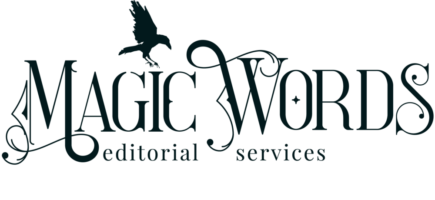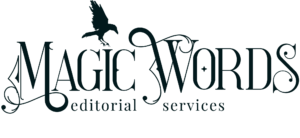
What to Do if You Absolutely Can’t Afford to Hire an Editor
I recently ran across this question in a Facebook writers’ group: “If you absolutely can’t afford to hire an editor or to have your novel professionally edited, what would you do? Anyone have any tips for a broke author?”
First: {{{{{hugs}}}}}
We’re living in a weird time, friend. Money is on everyone’s mind, and it’s tough to be a creative artist in a bad economy.
Second, if you’re wondering the same thing as this broke author, I have some thoughts and advice that might help. Here’s what to do if you absolutely can’t afford to hire an editor.
Save Up
This might be self-explanatory, but you’d be surprised to know how many authors don’t think to or dismiss delaying a book in order to save up the cash they need to publish it professionally. There seems to be a (perhaps misguided, perhaps necessary) rush to get a freshly written book up on Amazon and making sales ASA-freakin’-P after typing “THE END” on the first draft common to those who self-publish.
Whoa. Slow down. There’s probably a good reason why traditionally published books take two or more years from acquisition to release—that’s how long it takes to ensure a quality product.
I’m not suggesting self-publishing authors should take two years or more to release a story. But I do recommend not rushing your publishing schedule, and slowing down to save money for a quality, professional editor is a worthy use of that delay.
And, yes, everyone in this economy is living paycheck to paycheck, struggling to pay for basic necessities, can’t spare $$ for savings, etc. Same here, friend (except without the, er, paycheck).
But what if you entertained the idea of taking on a side hustle? Selling some things on Marketplace you no longer use? Putting aside a little extra through direct deposit into a savings account? (Even $20 a week could add up quickly.)
Before you know it, you’ll have what you need to hire your perfect editor.
Ask for a Payment Plan
Some editors extend payment plans of varying lengths and amounts as a courtesy for authors who ask for one. (I do!) Some absolutely do not, and I can understand where they’re coming from. Payment plans can be hard to administer, depending on an editor’s banking or payment processing setup, and editors run the risk of not receiving full payment for services rendered if an author ends up not being able to pay . . . or ghosts them. (It happens, sadly.)
Your perfect editor might be someone who does, though, so always ask if you believe this would help you. See if your editor will negotiate their terms—maybe to add more time to pay, or charge according to your paycheck schedule. (Be prepared to pay an interest charge on a payment plan, though—some editors might charge one to cover the administrative fees and time necessary to offer a plan.)
Negotiate the Service
Occasionally, and especially if it’s a project I really want to work on or an author who is just awesome, I’ll offer to scale back a service package to meet someone’s budget.
By “scale back” I mean I might do just one pass for a copyedit, or I might write a shorter editorial report that addresses fewer author concerns or story issues for a manuscript assessment.
Ask if your perfect editor can be flexible on their service options and therefore charge less for them.
I will say this can be a bit controversial in editor circles. We can be a bit sensitive to authors who immediately try to haggle on price, as if they think we’re rug dealers in a Moroccan bazaar.
But go in with the right attitude and respect for us as professionals and business owners, explain your situation and how a scaled-back service and lower price would benefit you, and you might find your perfect editor is open to making a deal.
Get a Mini-Edit
Increasingly, I’m seeing editing service packages consisting of some kind of edit (usually line or copyediting) on the first ten pages, or five chapters, or some other short chunk of a story, that is then followed by a form of coaching or training. This coaching is designed to help an author take what the professional has done in that short chunk and apply it to the rest of the book on their own.
I have mixed opinions about this.
A huge reason why authors hire editors is to have a professional provide a service for something that they themselves don’t have the time (or desire) to do. Maybe they work a demanding job and/or have family responsibilities, or perhaps a neurodivergence that affects their ability to focus on detailed work. So, offering something like this as an affordable alternative limits it to those who don’t fall into those camps.
However, the teacher in me likes the opportunity this gives authors to learn more about writing mechanics and techniques for self-editing that they can apply to future books.
Regardless of my thoughts on the matter, your perfect editor might offer this, or might be open to it if you ask. If you have the time and think you could learn and apply what they’ve done effectively, it could be worth it. (What do you think? Is this something you’d be interested in as a service? I’m thinking about it. Let me know if you’d take me up on that.)
Chunk the Project
I’ve heard of authors making arrangements with their editor to work on a chapter at a time—sometimes as they’re written! The author finishes a chapter, revises it, and sends it to the editor piecemeal; the editor then charges only for that chapter or section or part after the editing work is done.
While I question the business sense of doing this (I’m unsure how this can be sustainable or financially feasible for the editor), you might find your perfect person is A-okay with it. Just ask!
Explore Bartering
Bartering is exchanging something of equal value that isn’t money. For example, I once bartered haircuts for dog-walking with a hairstylist friend who had a cute Dachsund in need of some attention while she was at work.
If you offer some kind of service, like maybe social media management, or have a skill that an editor needs (TikTok videos, anyone?), see if you can barter that in return for editing.
Try Self-Editing (But Lower Your Expectations)
As a last resort, yes, you could try self-editing. I say “last resort” because you WILL miss things. (That’s not my opinion—it’s science.) You will need to go in to self-editing with the expectation that your book is not going to be the same quality as it would have been in the hands of a professional. It will not have Chicago-style, making it look different to readers than what they see in traditionally published books. And inconsistencies and clarity issues might persist that sharp readers will find.
If you try this, I suggest:
- Learning as much as you can about self-editing. Start with the book Self-Editing for Fiction Writers by Renni Browne and Dave King and The Magic of Fiction by Beth Hill. These two books contain wonderful information for both story and language editing that authors can apply to their own books. But, beware. It’s a lot to take in and requires a lot of self-confidence and dedication.
- Utilizing critique groups and beta readers to their fullest. Getting as much feedback from people who are not you as you can might help you avoid the natural and expected blind spots you’ll have for your own words.
- Investing in the best editing software you can find. Skip Grammarly—its suggestions aren’t appropriate for fiction. Try Fictionary and ProWritingAid, but keep in mind they aren’t perfect either.
It is possible to do a good enough job self-editing if you follow the above steps. But do prepare yourself for more critical reviews than you might get otherwise. Setting the right expectation at the beginning will help you weather that criticism.
***
If you’re in the market for developmental feedback and/or editing and have a small budget, you might be interested in my low-cost, entry-level Story Diagnostic service (otherwise known as a manuscript assessment). While not as thorough as a full developmental edit, it will help pinpoint the top few story craft issues holding back your book’s success. Learn more and apply here.
Need some other kind of help to afford editing? I believe in you and the stories you’re writing, and I want to do whatever I possibly can to both make a living and help your dreams take flight. Contact me, and let’s start a discussion about ways you can afford to hire me.




